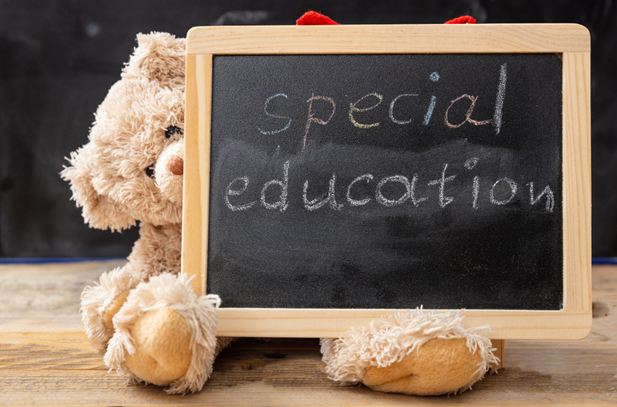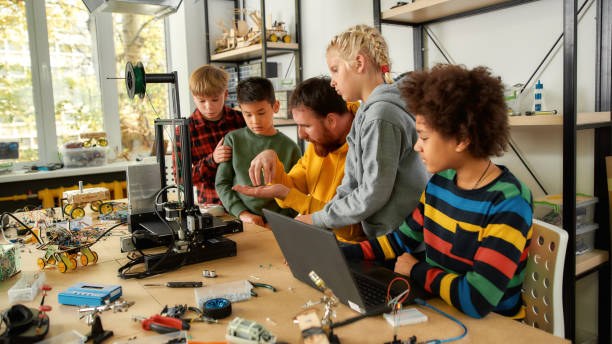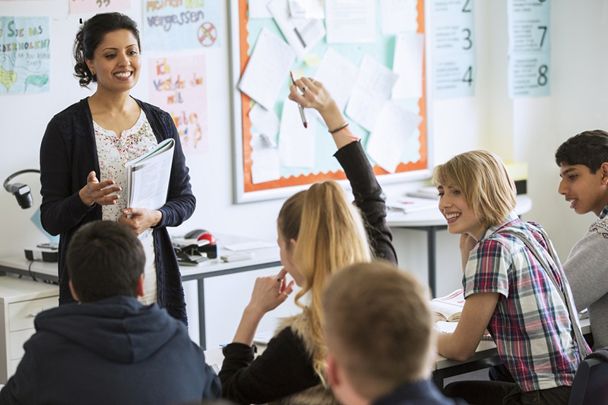
Top 7 Best Skills That Should Be in Every Special Education Teacher
admin
- 0
Skills – Teachers are crucial to society’s ability to reach its full potential. They aid in the development of fundamental academic concepts and life skills necessary to complete daily tasks. Strong educators inspire and assist students to achieve success both inside and outside of the classroom. Teachers who work with children who have special needs need to have characteristics that make it easier for them to deal with their health conditions as well as their disabilities, both physical and mental.
Each child’s disability and limitations are unique. To develop individual objectives for each student, special education educators must identify them. Students with a variety of disabilities must receive highly specialized training from professionals who are qualified.
Teaching special education is a rewarding profession, but it also comes with a lot of challenges. Therefore, qualified professionals need to be good at certain things to succeed and advance in the industry. Through education, teachers can acquire these abilities.
Top 7 Best Skills That Should Be in Every Special Education Teacher:
The seven main qualities of a good special education teacher are as follows:
1. Skills for communicating:
A key component of a good education is effective classroom communication. Different exercises in the class show how to communicate. Teachers can effectively lead, guide, and direct their students with effective communication skills. Be that as it may, working with kids with explicit necessities can make correspondence troublesome.
2. Empathize:
Individuals utilize “compassion” consistently, however, a couple of individuals comprehend what it implies. The capacity to empathize with other people’s feelings is called empathy. A teacher with empathy is needed to teach people how to live freely. However, it is much simpler to empathize with those who are closest to us and share our most commonalities.
Your attention should be paid to the difficulty of empathizing with children with special needs. They shouldn’t feel ignored by that, though. Even if you don’t always understand what your students are doing, developing trust with them is essential because it leads to learning. When things get out of hand, teachers can help students develop empathy by asking them insightful questions to broaden their perspectives.
3. Patience:
Teaching students with special needs is challenging and time-consuming. To complete simple tasks or comprehend fundamental concepts, these children frequently require additional time. It is beneficial to gather, but special education teachers must require their students to complete the assignments, regardless of how long it takes. Special education teachers need to be patient, according to the Bureau of Labor Statistics.
It can take some time for children with special needs to learn the same things that the average child can easily learn. Due to their differences, teaching some children can be extremely challenging. Students’ sluggish progress necessitates patience and anger management skills on the part of teachers. You might need to indulge in unplanned activities that are not related to the curriculum because having fun is sometimes perfectly acceptable.
4. Innovation and Creativity:
A key quality for a special education teacher is creativity. Each student learns differently. While some people learn best through visual or kinesthetic methods, others learn best by listening.
Lessons need to be adaptable for teachers to ensure that all students benefit from them. Despite their academic success, some students may struggle socially. It might be hard for some people to practice basic speech or motor skills. When planning routine classroom activities, special education teachers must therefore be creative and innovative. Planning must also be able to change with the changing nature of obstacles. Special education teachers need to be up to date on the most recent teaching methods and constantly introduce new ones.
5. Capacity to Change:
One of its distinguishing features is the prevalence of innovation, change, and uncertainty in special education. The capacity to successfully respond to any of these changes is what is meant by the term “adaptability.” To maintain professional standards in the classroom, teachers must be adaptable. Consistently is unique and things can change whenever.
No matter how well you plan, even the best teachers cannot predict what will happen on any given day. The first step in developing an adaptable teaching style is comprehending that no one approach works for all students. Because students in special education come from a variety of backgrounds, strengths, and weaknesses, teachers in this field need to be able to adapt to their classes.
6. Skills for managing things:
Special education teachers, like regular educators, need to be well-organized. When it comes to introducing classroom activities and successfully responding to student requests, organizational skills are crucial. To meet the requirements of each child with special needs, careful planning is required because each student has a distinct disability. A well-planned classroom with a set of exercises and everything in its place will inspire students to succeed; it will also make students feel more at ease.
7. Maintain your composure and sense of intuition:
If a child has communication issues, they may have trouble expressing their feelings. When confused or overwhelmed, students with special needs frequently act aggressively or disengage. To identify the underlying causes of misbehavior, special education teachers must rely on their intuition. Additionally, maintaining a calm demeanor is crucial. because it can be extremely challenging for children to succeed academically and socially in a classroom.
Conclusion:
Students with disabilities frequently believe that their peers treat them poorly. Teachers have the power to inspire and motivate students to achieve higher grades by fostering a sense of comfort in the classroom.
Teachers in special education need different skills than teachers in general education. Because they play such an important role in the classroom, it is extremely difficult for them to maintain their equilibrium. Several of the characteristics listed above can contribute to the creation of a positive environment for children with special needs. Teachers who possess these characteristics increase the likelihood of success for students with special needs.

